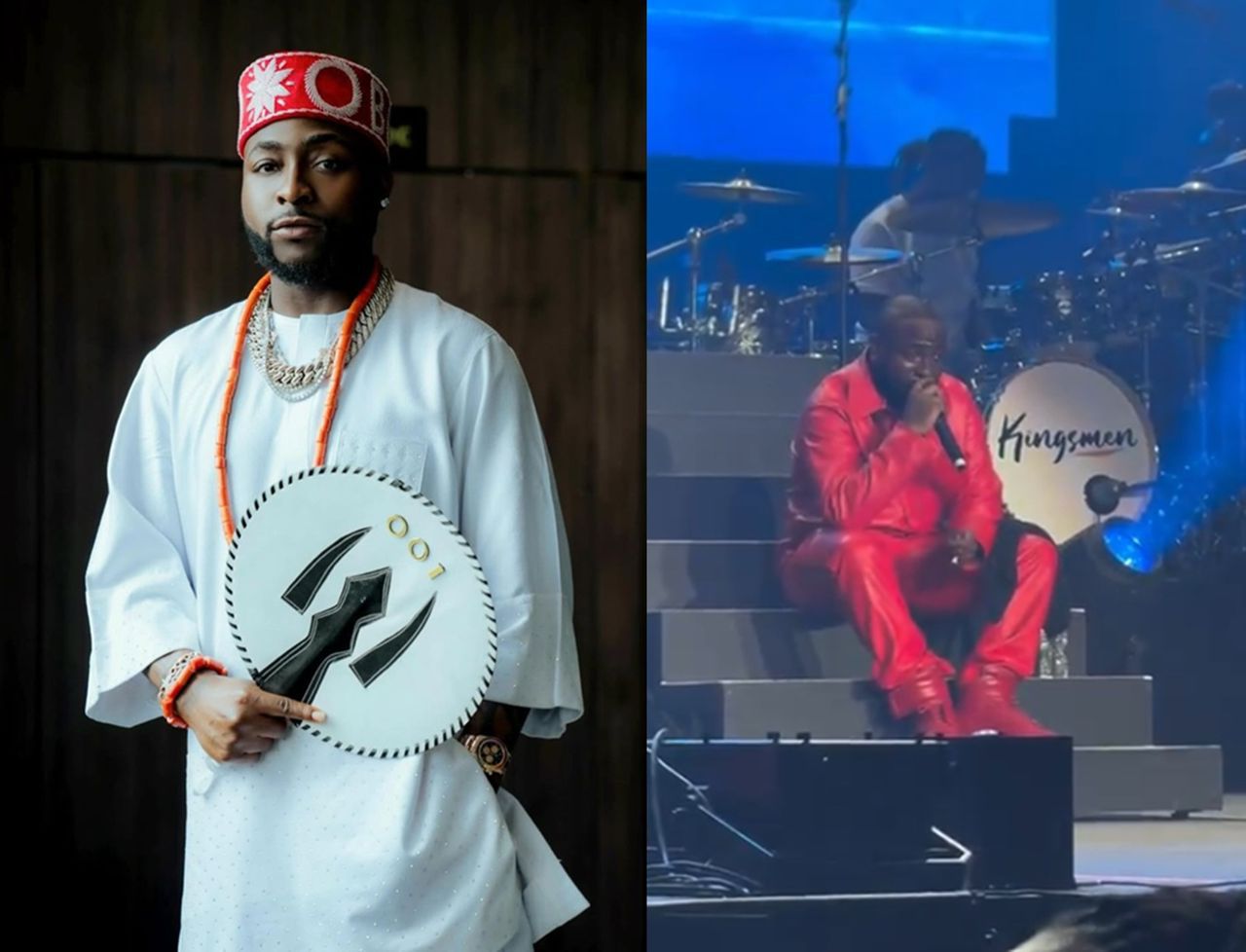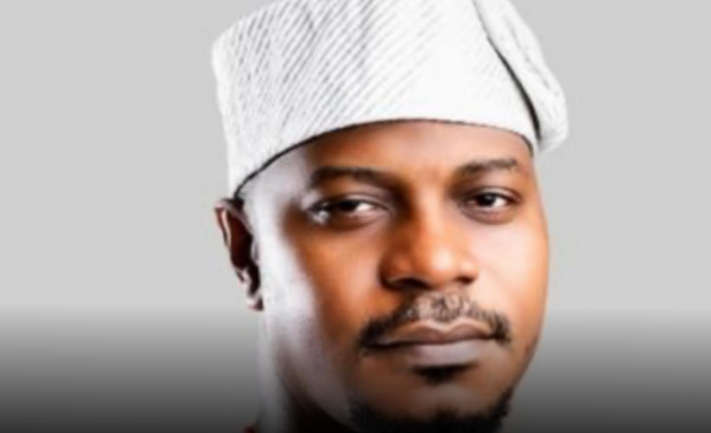

In a night filled with bright lights, roaring fans, and electrifying music, Davido paused everything. The energy inside the packed venue in Atlanta shifted from explosive excitement to a deep, reflective hush as the superstar asked thousands of fans to stand still with him. “We are going through a lot as a nation, but we stand strong together,” he said—words that rolled across the hall like a wave. For a brief but powerful moment, the chaos of concerts, the rush of fame, and the adrenaline of the night all halted, replaced by a silence so heavy it felt sacred.
Those who attended the show described it as one of the most emotional and unexpected moments in Davido’s long touring history. Known for his vibrant performances and high-energy presence, the award-winning singer is rarely associated with such solemnity on stage. But on this night, in front of thousands of Nigerians in the diaspora and global fans who have embraced Afrobeats with open arms, he chose to highlight something deeper than entertainment. He chose to shine a light on Nigeria’s painful reality—a nation still battling insecurity, economic hardship, political tension, and the emotional exhaustion that comes with it.
For many in the crowd, the moment of silence was more than a symbolic gesture; it was a reminder of home. Some fans wiped their eyes, others bowed their heads, and a few raised their phones—not to record, but to shine their flashlights in silent solidarity. In a country where daily struggles have become an exhausting routine, where news of violence, hardship, and uncertainty greet citizens each morning, Davido’s acknowledgment was a rare kind of validation. It was a reminder that no matter how far Nigerians travel, the emotional weight of their homeland never leaves their hearts.
Davido’s Atlanta show had been buzzing with energy from the moment he stepped onstage. Songs like “Unavailable,” “Feel,” and “Fia” sent waves of excitement through the hall. But it was his unexpected pause that became the night’s defining moment. He put down the microphone for a second, paced slowly across the stage, and then signaled to the band to stop playing. The dancers froze. The lights dimmed. And the crowd fell quiet, waiting.
“We dey go through a lot,” he continued, slipping into the comforting familiarity of Nigerian Pidgin, his voice both emotional and firm. “But we stand strong together. Make we hold each other.” The reaction was instant—an eruption of applause that felt less like admiration and more like unity. In that moment, it didn’t matter that the concert was happening in the United States. For everyone in that room, it felt like Nigeria had entered the building.
Social media lit up almost immediately. Clips of the moment began circulating within minutes, flooding timelines on X, Instagram, and TikTok. Many Nigerians at home expressed gratitude, saying the gesture made them feel seen. Others praised Davido for using his global platform to acknowledge the country’s struggles instead of ignoring them. Comments poured in from people who had lost loved ones to violence, from students frustrated by economic hardship, and from citizens simply overwhelmed by the state of the nation. For them, the silence wasn’t empty—it was filled with emotion, grief, resilience, and hope.
This is not the first time Davido has openly shown concern for Nigeria. He has previously used his voice, influence, and music to speak up during national challenges. From supporting EndSARS protesters to calling for justice in moments of national pain, Davido has consistently taken positions that resonate deeply with young Nigerians. In an entertainment landscape where many celebrities avoid political or social commentary, Davido’s willingness to speak has made him not just a superstar, but a relatable figure—a son of Nigeria who feels its pain.
Yet, this Atlanta moment felt different. It wasn’t a tweet. It wasn’t a press statement. It was real, raw, and witnessed by thousands in real time. It captured the emotional fatigue of a nation whose citizens have learned to laugh through pain and celebrate even when things fall apart. It highlighted the power of music not just to entertain, but to connect, comfort, and unite.
Even after the moment of silence, the rest of the show carried a different kind of energy. When Davido resumed performing, many fans said the music felt heavier, richer, and more meaningful. Songs like “Stand Strong,” his soulful anthem about resilience and struggle, suddenly echoed louder, their lyrics resonating with a renewed depth. Fans could be seen singing with their eyes closed, fists raised, or hands on their chests. It became more than a concert—it became a communal experience, a reminder that Nigerians, no matter where they are in the world, share a bond forged through both joy and hardship.
In a global era where Afrobeats has taken center stage and Nigerian artists sell out arenas around the world, moments like this underline the cultural power these musicians carry. They represent a country whose people are talented, resilient, and determined, yet consistently burdened by crises. Davido’s decision to pause his show to honor Nigeria was a subtle but powerful call to remember what truly matters.
As the night ended and fans flooded out of the venue, many were still discussing the silence. Some said it gave them chills. Others said it reminded them to call home. A few described it as the highlight of the night—a moment they would never forget. It was a reminder that even in the midst of celebration, Nigerians carry an emotional suitcase packed with memories, worries, and dreams for a better future.
For a nation currently navigating some of its toughest moments, Davido’s words—“We are going through a lot as a nation, but we stand strong together”—were more than a statement. They were a mirror held up to millions of people who have refused to give up, despite everything. A reminder that unity is not just a slogan, but a lifeline. A reassurance that even when the world feels unbearably heavy, Nigerians still find ways to stand strong, together.
And in an arena thousands of miles away from home, for one beautiful, unforgettable moment, silence said everything.


